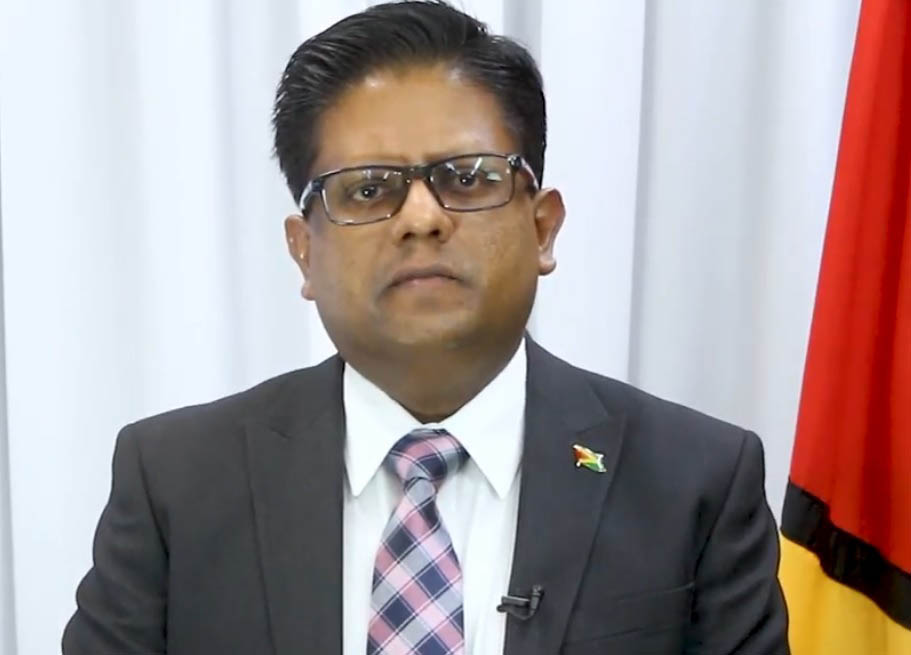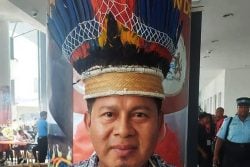Minister with responsibility for Finance, Dr Ashni Singh last week told a UN forum that the Guyana Government has restarted the bolstering of institutions vital for public accountability, transparency and good governance.
According to a copy of his presentation released by his ministry, Singh on June 2nd address-ed the United Nations General Assembly Special Session on Challenges and Measures to Prevent and Combat Corruption and Strengthen International Cooperation.
He stated during his address that “Since resuming office last year, our Government has restarted the agenda to strengthen the institutions that are critical to ensuring public accountability, transparency, and good governance, building on the foundation laid during our previous tenure. That foundation includes our constitutional and legal frameworks in such areas as parliamentary oversight, independence and mandate of constitutional bodies, integrity in public office, public financial management, public procurement, and anti-money laundering and countering the financing of terrorism.
“Moving the agenda forward will include continued building of capacity in the institutions tasked with implementing these frameworks, while grappling with current and emerging realities. For example, the onset of COVID-19 presented an opportunity to deploy digital technology to facilitate remote bidder participation in bid openings in public procurement, thereby enhancing public scrutiny of the process and helping to build trust. Digital technology offers exciting opportunities for delivery of public services to be enhanced while improving public accountability”.
Singh, the Senior Minister in the Office of the President with Responsibility for Finance, underlined the importance of buttressing institutions to combat corrupt practices. He also acknowledged the threat that corruption poses to the achievement of the UN’s Sustainable Development Goals (SDGs) and the implementation of the 2030 Agenda for Sustainable Development as a whole.
The minister underscored that corruption undermines the core principles of democracies and expressed gratitude to the international community for its role in helping to preserve the will of the Guyanese people during Guyana’s recent elections crisis.
He told his audience “Corruption has deep, insidious, and lasting consequences on economies and societies. Its harmful effects on stability and security, public institutions and trust in them, the functioning and efficiency of markets, and overall economic performance, are well documented. It undermines the rule of law, and is often directly linked to serious crime, such as money laundering, terrorism, and trafficking of drugs, arms, and persons”.
He added that the tentacles of corruptions are global and affects all countries.
“And, its manifestations are diverse – from the height of sophistication in the boardrooms of large global corporate entities, to the pettiest of forms met in the realities of daily life in small villages. Sadly, as with many social ills, its effects are borne most heavily by the vulnerable”, Singh stated.
He said that Guyana is particularly pleased at the recognition of the importance of preserving the integrity of the electoral process as a means of preventing corruption, ensuring accountability, promoting good governance, and reinforcing trust in public institutions.
“Ultimately, corruption threatens the very core of the values of democracy, that we hold so dear as a global community, and for which so many of us have fought across continents and over centuries. Guyana remains indebted to our international partners who played an instrumental role last year in helping to ensure that democracy was not subverted and that the democratic will of the people was eventually respected”, Singh said.
Recognising the importance of good governance in the natural resource sector, Singh said that Guyana will also implement the standards of the Extractive Industries Transparency Initiative, and uphold the Santiago Principles for management of sovereign wealth funds.
He also reaffirmed Guyana’s commitment to continue working with international partners, including the United Nations, the UN Office on Drugs and Crime, and the Implementation Mechanism of the UN Convention Against Corruption.





